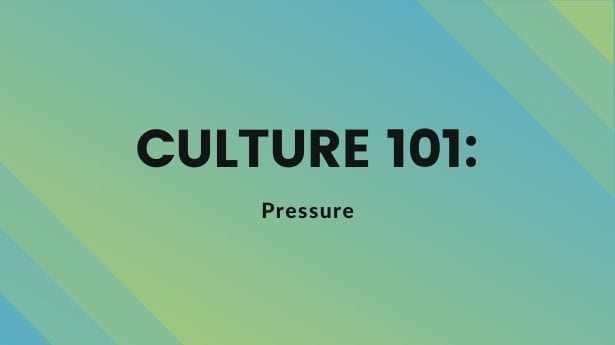AUTHOR:
Erica Salmon Byrne, J.D.
Executive Vice President and Chair of the Business Ethics Leadership Alliance (BELA)
In this series, we share insights into the eight pillars that make up a robust ethical culture. Our eight pillars seek to get at the key metrics of a strong ethical culture: Do your employees understand what is expected of them? Do they know where to go if they have questions? And, if they need help or have made a mistake, do they trust the process enough to go through with it?
In our previous posts, we’ve discussed:
Today’s post focuses on the pressure to compromise company standards in the pursuit of achieving business targets.
PILLAR FOUR:
Pressure
What we aim to measure:
In this Pillar, we measure the strength and source of pressure employees may be experiencing to compromise standards to hit goals. Does the “what” matter more than the “how” within the organization? Are employees encouraged to circumvent standards to achieve business objectives? And if yes, by whom?
Types of questions we ask:
- I feel pressure to compromise the Company’s Code, policies, laws, rules or regulations in order to achieve business goals.
- I feel this pressure from my senior leadership, middle management, immediate managers, coworkers, customers, or business partners.
- The type of pressure I feel is strong, weak, or moderate.
Why it matters:
In a push for profits, an organizations can sometimes unintentionally elicit risky behaviors that are unethical and illegal. An organization that emphasizes results ‘at any cost’ lives on borrowed time. Organizations that encourage and reward efforts to achieve business objectives while adhering to the company’s values and legal obligations set the stage for sustainable operational excellence.
What the data says:
This pillar tends to be an area that reveals critical insights and opportunities for improvements. According to our data (of more than 1 million responses):
15 percent indicate they experience pressure to compromise company standards or the law in order to achieve business goals
58 percent that do experience pressure indicate the pressure has a strong or moderately strong influence on their decision making
Participants experiencing pressure most frequently cite Senior Leadership (38 percent) and their Immediate Manager (37 percent) as the source(s) of the pressure
The key takeaway from these statistics is that organizations – specifically, leaders within the organization – may unwittingly partake in committing the sin of omission, not commission. Rarely are senior leaders or managers explicitly stating that employees should achieve their business objectives by whatever means necessary. However, often missing in directives is the encouragement to achieve objectives in accordance with company standards.
The bottom line: When organizations reward performers (either through promotion or bonuses), that implicit pressure can lead employees to make compromising decisions that allow them to meet their targets.
How Ethisphere clients have used the data/insights:
Managers play a big role in how employees work to achieve their objectives. Quite often, managers who are not talking about how to achieve objectives in the right way aren’t opposed to doing so – they just see it as someone else’s job to share that part of the message (looking at you, E&C professional).
In other cases, managers are instigators of bad behavior, particularly in regions where actions, such as bribes, are an accepted norm.
Our clients use numbers like these to drive home the message that this is everyone’s job. When talking with managers, E&C teams emphasize that conversations around goals and objectives has to include reminders that the way in which something is done matters just as much as whether it is accomplished. They also share communications and tactics to support this message.
An individual company’s approach to addressing this challenge will vary by industry, since the potential sources of pressure can be different. For a tech company, pressure may come from a customer like a reseller or distributor. In retail or hospitality, customers are often a source of pressure, and the response there may be to deploy de-escalation training to help employees deal with overzealous guests asking for upgrades to which they are not entitled.
Once a company is armed with their data, identifying how to support employees who are feeling pressured or ways to remove the pressure with better communications becomes an easier exercise.
(Note we don’t say easy. Just easier. This pillar is always a challenge).
Expert tips for your program effectiveness:
- Celebrate moments where an employee elects to do the right thing and protect the organization’s reputation versus making a sale by unethical means – preferably in front of colleagues if possible. Public praise matters.
- Encourage executives to emphasize the substance behind performance, not just the performance itself.
- Train managers to observe and calibrate their response to failure. What is their reaction when someone brings bad news? It will influence whether they share again.
Have questions about ethical culture?
Schedule time to talk with an Ethisphere expert, or
subscribe to our “Culture Corner” newsletter to stay up-to-date on ever-changing culture trends and data.
Our new Culture Corner newsletter delivers relevant data, insights, research, and current events about culture and its relationship to ethics, compliance, and risk to your inbox twice a month. In less than five minutes, you’ll learn something new that will help you make a positive impact on your culture. Sign up by completing this form.
Prove Your
Ethics Program Works.
Benchmark your ethics & compliance program against Fortune 500 leaders.
- Prove your program’s effectiveness
- Prioritized roadmap for improvement
- Implement Proven Tools & Processes
Author Bio

Erica Salmon Byrne, J.D.
|
Chief Strategy Officer and Executive Chair, Ethisphere
As Chief Strategy Officer and Executive Chair, Erica Salmon Byrne is responsible for ensuring continuous and strong growth for the company while maintaining Ethisphere’s founding ethos that good businesses do better.
 5 Minutes - Read Now
5 Minutes - Read Now 







